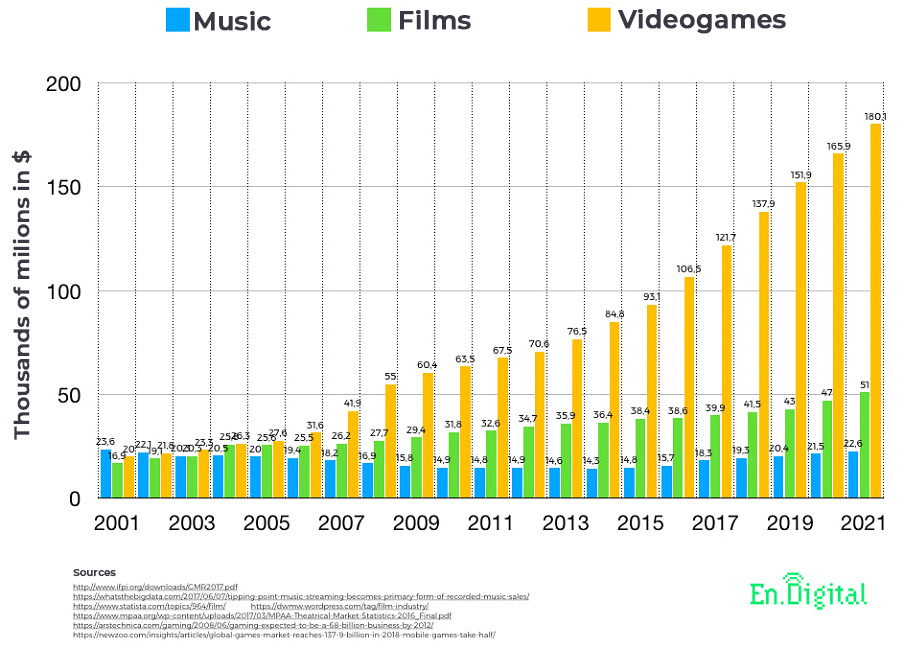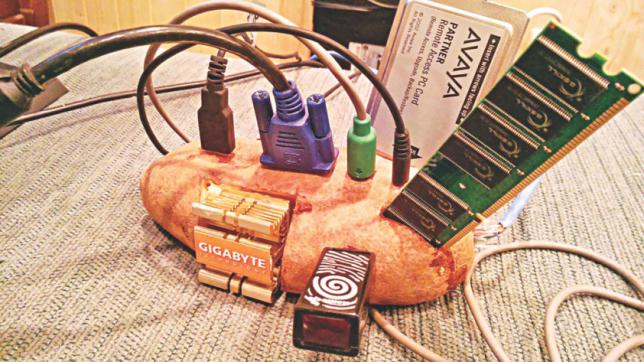With extraordinarily large profits and an ever growing demand, the video game industry is one of the biggest contributors to the economy worldwide. For now, it is mostly due to Western countries, but with a growing middle class in developing countries, this industry is becoming more and more accessible.

I will start by presenting some figures to give you an idea of how huge this industry is. Worldwide, as of 2018, it is a more than $130 billion a year* business. That is more than many sport and entertainment associations combined. Twitch has a big role in popularizing video games, with 15 million visitors daily. And, with the emergence of esports, it is very likely that this increase in popularity will continue. But how much do we know about what happens behind the closed doors of the companies that make video games? The answer is not a lot. One of the reasons is because the video game industry is still relatively new (it started around the 1970s), so we don’t really know as much about it as we know about other older and better established ones. People working in the gaming industry have been talking about unionizing for years now, and recently we have been seeing the results of this. The association Game Workers Unite (https://www.gameworkersunite.org/) started in the UK, and focuses on the improvement of working conditions for people in the gaming industry. This is not only a phenomenon of the UK, other unions have been emerging all over the world, and what unites them the most and gets more and more people to join them is the widespread phenomenon of “crunch”.
Crunch
The website Kotaku is a gaming website which reports news from the most trending games and the release of new indie ones. It also gives insights on the gaming industry behind them. Kotaku had already reported news on the lack of stability for game developers in 2014, and the situation has not really gotten better since then. Overworking in the gaming industry is such a big problem that a word has been created for it: “crunch”. According to the website Digital Trends**, the concept of “crunch” has been around in the gaming industry for quite some time. Some might think “well, if you don’t want to you are not forced to work over time, it is not part of the contract anyway.” But these people are wrong. Many game developers hear sentences along the lines of this: “We were all … told if we didn’t stay late then we were ‘naturally selecting’ ourselves, which simply means we would be fired”***. And many companies have been accused of forcing their game developers to these terms, including companies who develop triple-A games, such as Rockstar.
Sexism
Despite what one might guess from references to gaming in social media, the ratio between male and female gamers is pretty even. Therefore, one might think that maybe there is also an even number between male and female employees at companies that make video games. Sadly, this last statement is false. In a 2017 report, according to the International Game Developers Association (IGDA), almost 75% of people working in the gaming industry are males. The gaming industry is portrayed as male-dominated most of the time and this is true because female workers face heavy discrimination from their superiors. No matter how strong their passion for creating games might be, at one point they just refuse to face unequal treatment based on their gender.
Unfortunately, poor work conditions push many game developers to quit their jobs and give up their passion. Of course, passion should be what drives one’s job, that’s the ideal scenario. However, this is particularly true when it comes to the gaming industry: in such a hostile work environment, passion is what keeps people going. This makes it easier for employers to exploit their employees. Creating games is a great form of expression, and an amazing tool for storytelling. Of course, there will always be a handful of really well-earning games, like triple-A games, and the companies behind them will want more and more money, willing to sacrifice their employees’ well-being for it. But people who are genuinely passionate about making games and sharing them with the world should be free to do so without worrying about being fired unless they work 100 hours weeks, that’s just inhumane. Hopefully, thanks to the unions for gaming industry workers will help improve these work conditions, and game developers will be able to work on their creations in a better environment.
References:
*https://www.bloomberg.com/news/videos/2019-01-24/-bloomberg-technology-full-show-1-23-2019-video
**https://www.digitaltrends.com/gaming/how-crunch-affects-game-developers/
***https://www.digitaltrends.com/gaming/how-crunch-affects-game-developers/
Image 1: https://lpesports.com/e-sports-news/the-video-games-industry-is-bigger-than-hollywood
Image 2: https://www.thedailystar.net/shout/humour/struggles-being-gamer-potato-pc-1484959
For further reading:
https://www.gameworkersunite.org/
https://kotaku.com/




Lovely post! To add a little, there are big differences in gaming industry markets between the West and Asia. Im not sure how much went into calculating that bar chart, but one of the biggest online games (League of Legends) has shown more and more signs of developing towards the Asian market, in terms of artwork and theres rumours of a mobile phone game coming out (also a huge branch in Asia). Additionally, League (and many more big games) have taken up the “gacha game” route. This is a money-making system in which there is a coin-slot like feature for in-game items in exchange for real money (also big in Asia). Pay2win is also pretty awful but thats something else. Cheers!